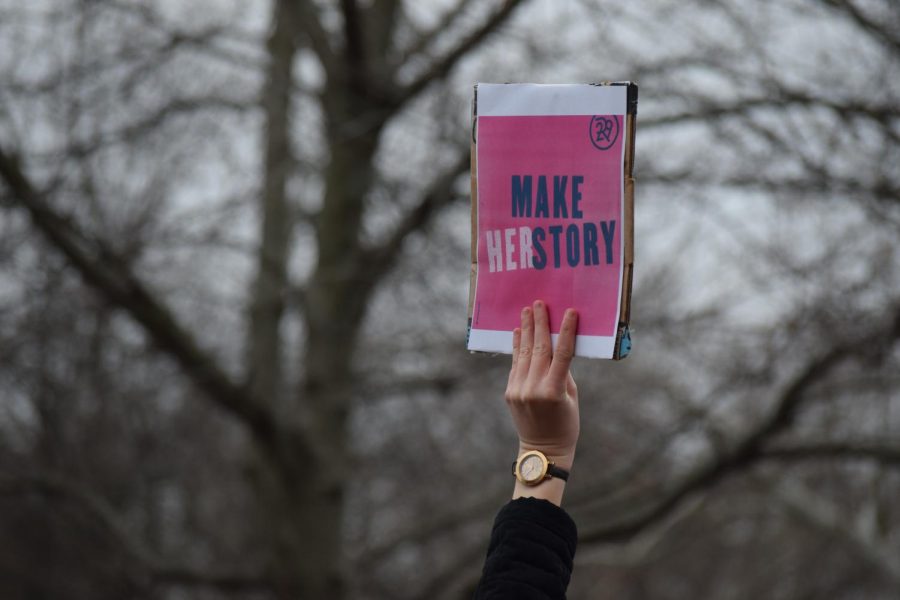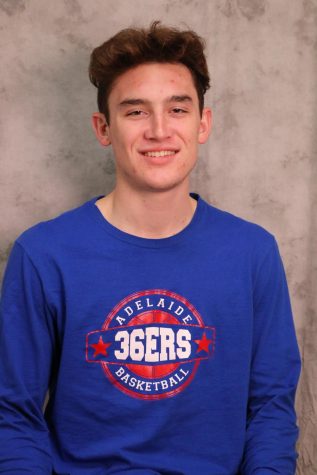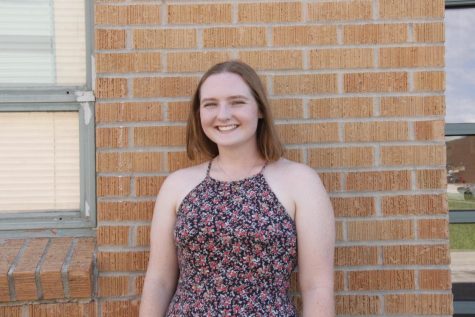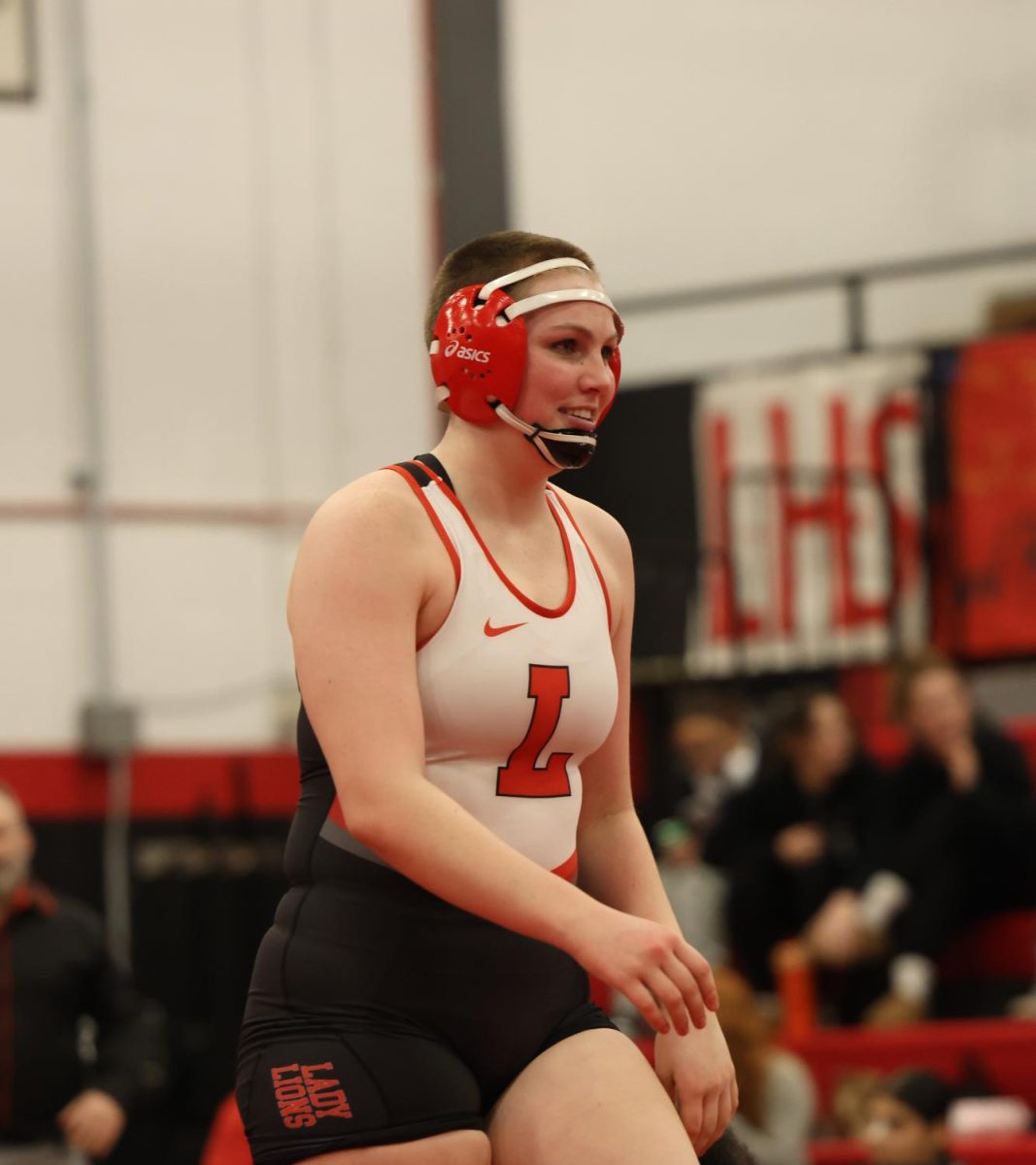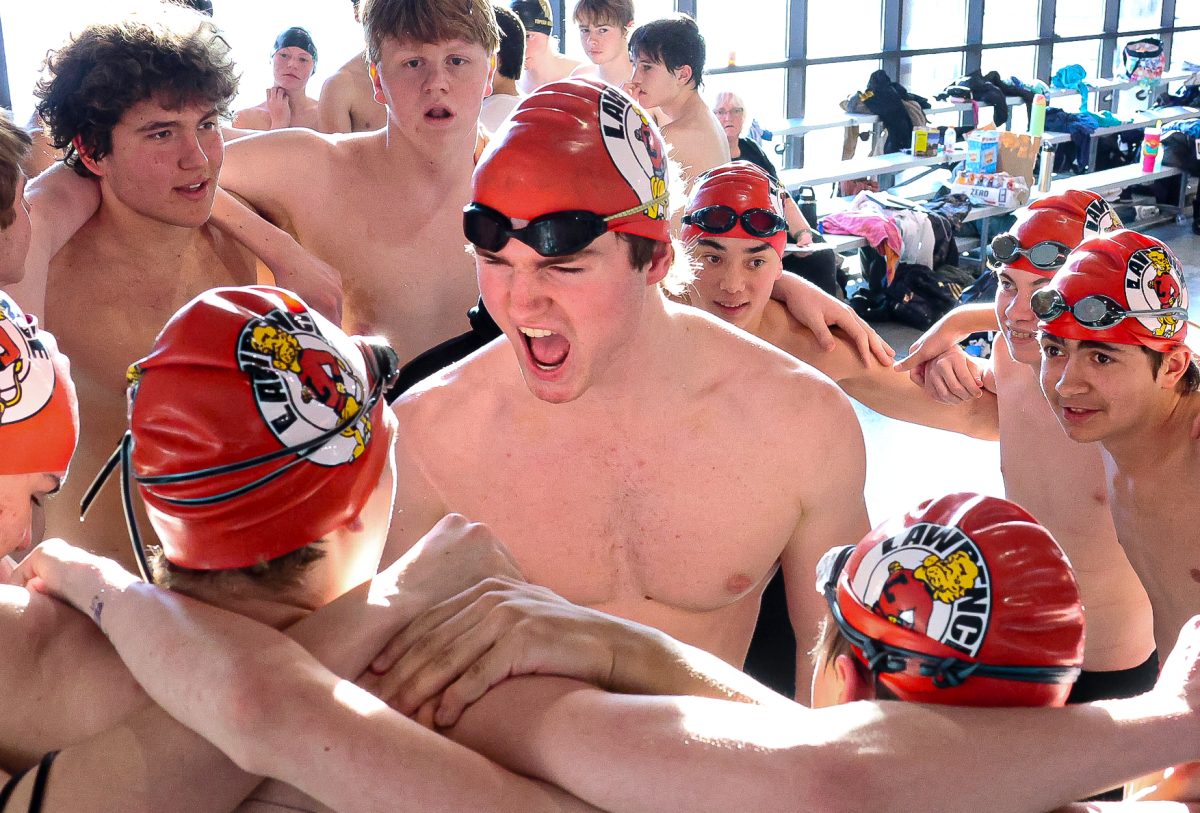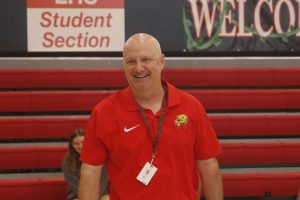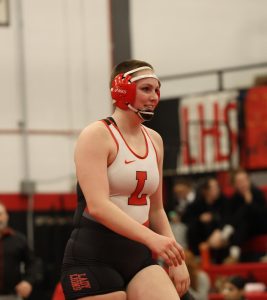Women gather for second march
Thousands join Lawrence Women’s March
The story — Feminists rally in protest against the Trump administration on Jan. 20 in South Park, recreating last year’s Women’s March for Equality. The crowd championed reform of all manner, promoting civil rights and gender equality.
February 16, 2018
Thousands gathered in South Park on Jan. 20 for Lawrence’s 2018 Women’s March, and many LHS students were among the group.
“There were speeches at the beginning and a lot of people had signs, and then about after an hour, we walked up Mass Street and then down,” junior Adi Spears said. “We didn’t have a permit so we had to walk on the sidewalk.”
Many who attended the march did so to protest actions of President Donald Trump, as the march was scheduled on the one-year anniversary of his inauguration. Others also chose to stand for issues that mattered to them.
“I would call myself a pro-choice individual, so that’s really important to me, and I was also trying to be there to stand up for trans rights because I know there were several women there that were transphobic or not interested in promoting total equality,” senior Satori Good said.
Freshman Amanda Earnhart called the opening speeches “inspirational” and said they were her favorite part of the gathering.
“The atmosphere was, I think it was powerful, especially because Lawrence is such a Democratic city in such a red state,” Earnhart said. “I think people really enjoyed getting together and listening to people make powerful speeches.”
Senior Allison Day, who witnessed the march but did not attend, noted that the issues represented at the march are applicable to LHS.
“The same issues of women’s equality can be present at Lawrence High,” Day said. “In sports and things, the girls’ sports aren’t always as well-attended… Part of the issue surrounding the Lawrence march, they were marching for equality obviously and didn’t include everyone that could have been included. They were pretty predominantly white women that were marching, and I think that same kind of exclusion is still a problem at Lawrence High with things that we do.”
Day’s concerns about total inclusion at the march were echoed by Good, who said that “there were a couple signs that were not thought out in terms of LGBT representation, but other than that, those are individual people and I think the collective community did pretty well.”
Despite concerns about some of the ways it was advertised, students were unanimous that the march was successful.
“There was a really good turnout and a lot of people saw us,” Spears said. “As we were walking downtown, people were honking their horns at us and waving.”
Spears, who attended the march last year in Topeka, said she noticed a difference in the atmosphere.
“I felt like I saw more men last year and more signs,” she said. “People seemed a lot more excited last year.”
Students interviewed mentioned different issues that mattered to them most, a reflection of the diverse causes represented at the march. For Good, it was the wage gap. Day and Spears emphasized the importance of protecting Planned Parenthood and access to women’s healthcare. Earnhart said that the “pursuit of truth in this country and the ability to treat everyone equally” mattered to her most.
Day said she wished a wider variety of people had felt more welcome to take part.
“I think the reason that people… [who] were trans folks or people of color didn’t go, is because they felt that they wouldn’t be welcome, and so I think it could have been advertised and promoted in a more inclusive way,” Day said.



